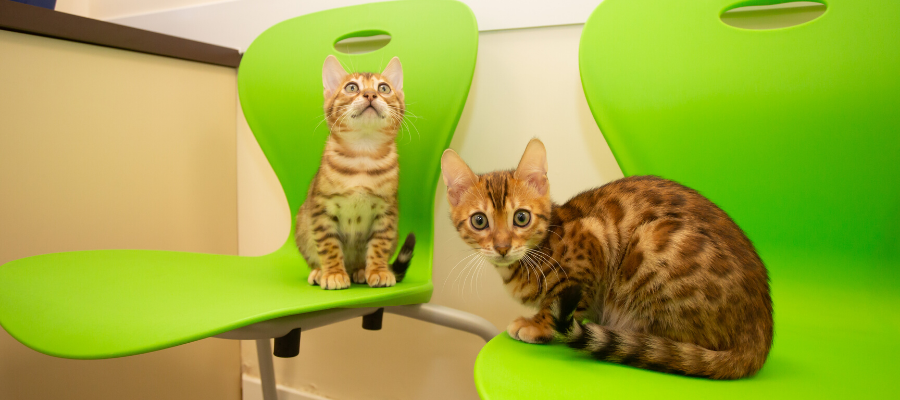
Constipation means infrequent or difficult defecation and can be a serious health concern in cats. The longer the faeces sits in the colon, the more water is absorbed from it, making it firmer, drier and more difficult to pass. Constipation is most common in middle aged to older cats but can occur at any age.
Signs of constipation
- Passing little or no faces
- Frequent trips to the litter tray
- Vomiting
- Reduced appetite
- Lethargy
- Abdominal pain
- Passing liquid faeces or blood
- Abdominal pain
- Straining to poop
If you have an indoor cat it is a good idea to monitor their litter tray outgoings so you get an idea of their normal routine, this will make it easier to spot problems. If you cat goes 24-48 hours without passing faeces you should contact a vet, straining is a clear sign that something is wrong. Never attempt to treat constipation with home remedies as these may not be safe.
What can cause constipation?
- Trauma to the pelvis
- Obstruction (foreign body, hairball, tumour etc.)
- Obesity or a lack of exercise
- Underlying disease such as chronic kidney disease or diabetes
- Stress when using a litter tray
- Not drinking enough water
Cats are stressed easily, if they have come to find their litter tray a stressful place because it is near loud noises or somewhere they are frequently disturbed they may avoid using it. Keep litter trays in quiet areas, away from their food, water and bed. It should also be cleaned frequently. Older cats may struggle accessing their litter tray, so consider a lower sided tray to make things easier.
Cats are quite fussy about their water sources and sometimes need some encouragement to drink more. Try a water fountain instead of a bowl, some cats prefer moving water to drink from. You can also experiment with bowls made of different materials and placed in different positions to see which your cat seems to prefer. Always provide them with fresh water in a clean bowl. If you notice your cat drinking less, this could be a sign of disease and they should be checked over by a vet.
How is constipation diagnosed?
Your vet will need to find out some history of the condition from you and conduct a thorough physical examination of your cat. In most cases the vet will be able to feel for a faecal blockage but radiographs may be needed to assess the extent of the constipation. Blood and urine tests may also be required to rule out any underlying disease.
How is constipation treated?
Constipation can be medically managed with laxative and muscle stimulants to get the colon moving. An enema under anaesthesia may also be required to remove obstructive faeces. Your vet may also recommend nutritional or lifestyle changes to improve their condition.
Never attempt to give your cat an enema yourself, this is a delicate procedure and should only be performed by a veterinary professional.
If constipation continues it can lead to obstipation (an inability to pass faeces altogether) and in some cases a condition called megacolon.
Megacolon
Megacolon occurs when the colon is over stretched by a large amount of dried faces. The muscles around the colon are then unable to tighten and the faces cannot be passed. Chronic constipation is a common cause of megacolon, though it can also be caused by by nerve damage to the large intestine or may have no known cause, this is called idiopathic megacolon.
Megacolon can lead to dehydration and if left untreated can be fatal. Affected cats may require the immovable faces to be removed by a veterinary surgeon manually under anaesthesia.
In severe cases whereby the muscles around the colon have lost all function, a surgery to remove the colon may be necessary.
Call us on 01435 864422 if you think your pet may be showing signs of constipation or book a health check via our online booking system.

